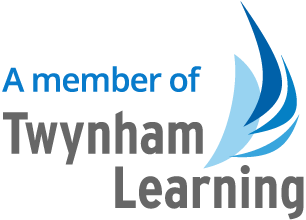Computer Science
|
Why Computer Science? This course has been designed for students who wish to go on to higher education courses or employment where knowledge of computer science would be beneficial. Programming is a key component of any computer science qualification and you will develop these skills through problem solving scenarios using an algorithmic approach. We teach high-level programming concepts from the ground up using Python to develop procedural, event driven and object-oriented solutions. The emphasis is on developing computational thinking skills to creatively code solutions that draw on key concepts fundamental to computer science. |
|
|
What do I need to know? Exam board: We study OCR Computer Science. Entry Requirements: As well as the standard Sixth Form requirements, you must also have Grade 6 or above in GCSE Mathematics and a grade 6 or above in Computer Science (if taken). It is desirable for you to have the ability to code solutions to problems in at least one high-level programming language. Key Content: In this course, you will gain extensive knowledge of theory which is developed further to include modern trends in computer science. You will learn low level language translation to machine code. Specifically, you will learn how to design and create algorithms, use data structures, forms of data representation, databases, big data, hardware, communication protocols and networking. You will also learn about the impact of computers in the modern world and the moral and legal issues that have arisen as a result of computers. |
|
|
What is the work like? As an example of the kind of work that you will cover during the A-Level course, please find to the right the pre-A-Level material that we asked Year 11 to complete before starting their Computer Science course with us in September. |
|
|
Who do I contact if I have any questions? Ms Suzie Jones will be happy to answer any questions that you might have. You are welcome to email her on suzie.jones@twynhamschool.com. To ask a Computer Science student more about the course, please email student@twynhamsixthform.com and they will be happy to help you. |
|
Curriculum Information
Assessment
Paper 1: The practical exam (2.5h, 40%)
Programming, Data Structures, Algorithms, Lists, Stacks, Recursion, Object Oriented Programming and Computational Theory
This is an on-screen exam based upon a pre-released skeleton program. You will answer series of short questions about the skeleton program and write your own code to extend the functionality of the program. The paper includes a small number of theory questions.
Paper 2: Written theory based question paper (2.5h, 40%)
Data Representation, Computer Systems & Architecture, Stored Program Concept, Communication and Networking, and Consequences of Computer Systems, Functional Programming, Operating Systems, Databases, Big Data, The Internet and Networking Protocols and Models.)
NEA: Practical Programming Project (20%)
You tackle a complex problem solving exercise of your own choice and are assessed on your written report.
Additional costs
We provide: In class access to:-
AQA AS and A Level Computer Science by PM Heathcote and RSU Heathcote (PG ONLINE)
ISBN: 9781910523070
If you want copies to work at home these will need to be purchased.
Other costs: To be met by students
Although not compulsory, we would highly recommend purchasing revision guides that can complement the course. Some examples are:
Need to Know: AQA A-level Computer Science
By: Stuart Davison (Author) ISBN: 9781510428560 (Current retail price: £8.99 )
My Revision Notes AQA A-Level Computer Science By Bob Reeves
ISBN: 1471865827
(Current retail price: £12.99)


